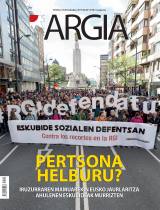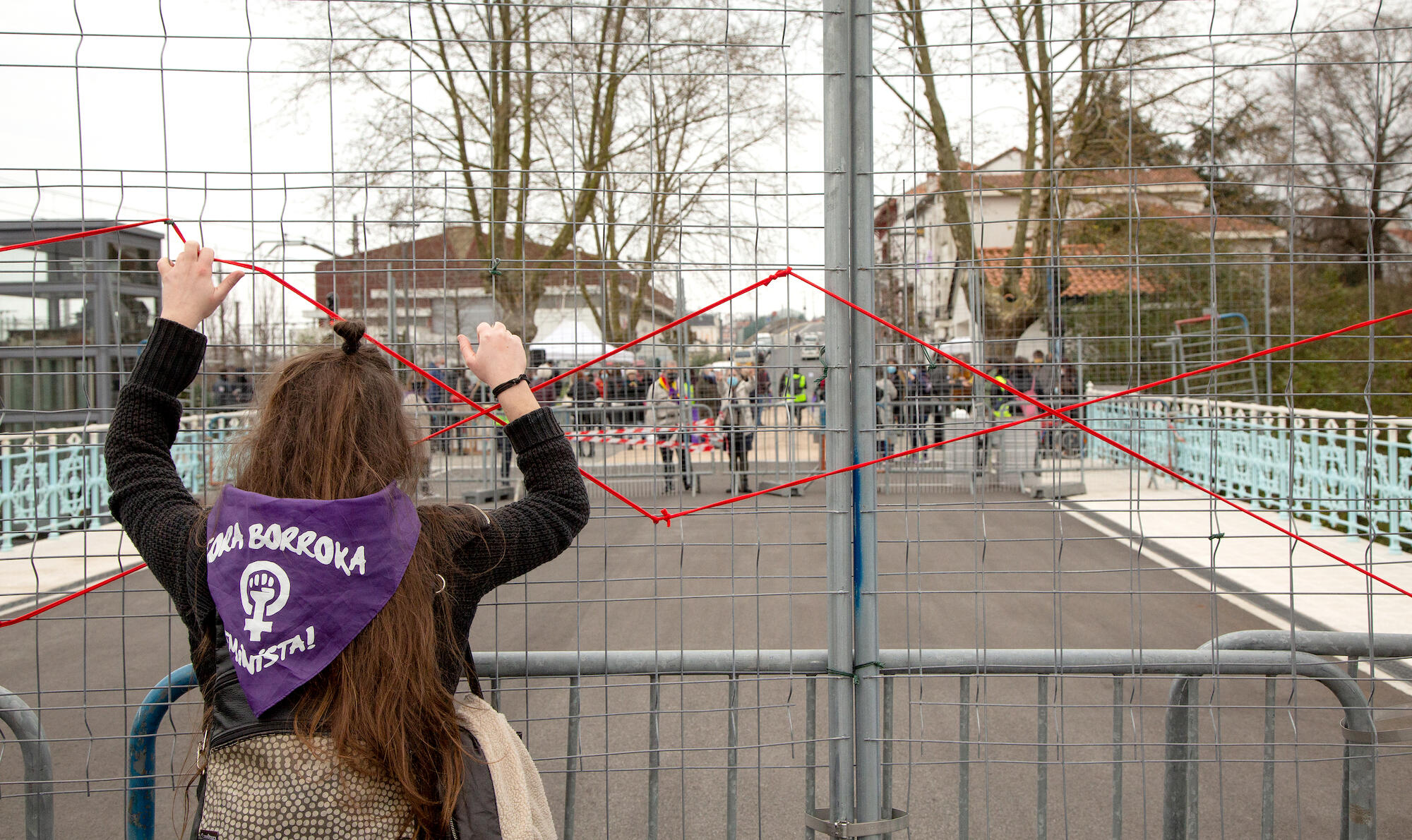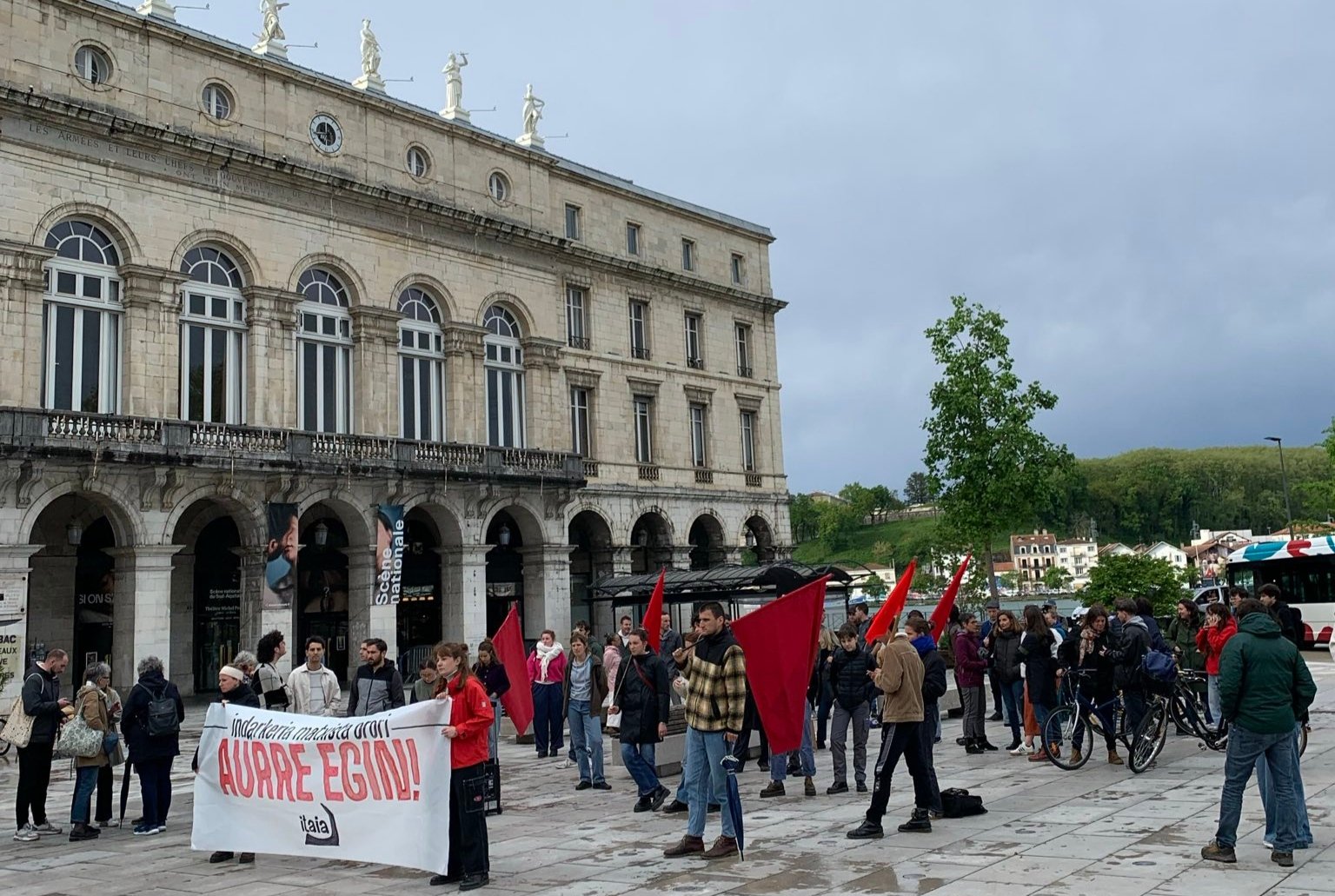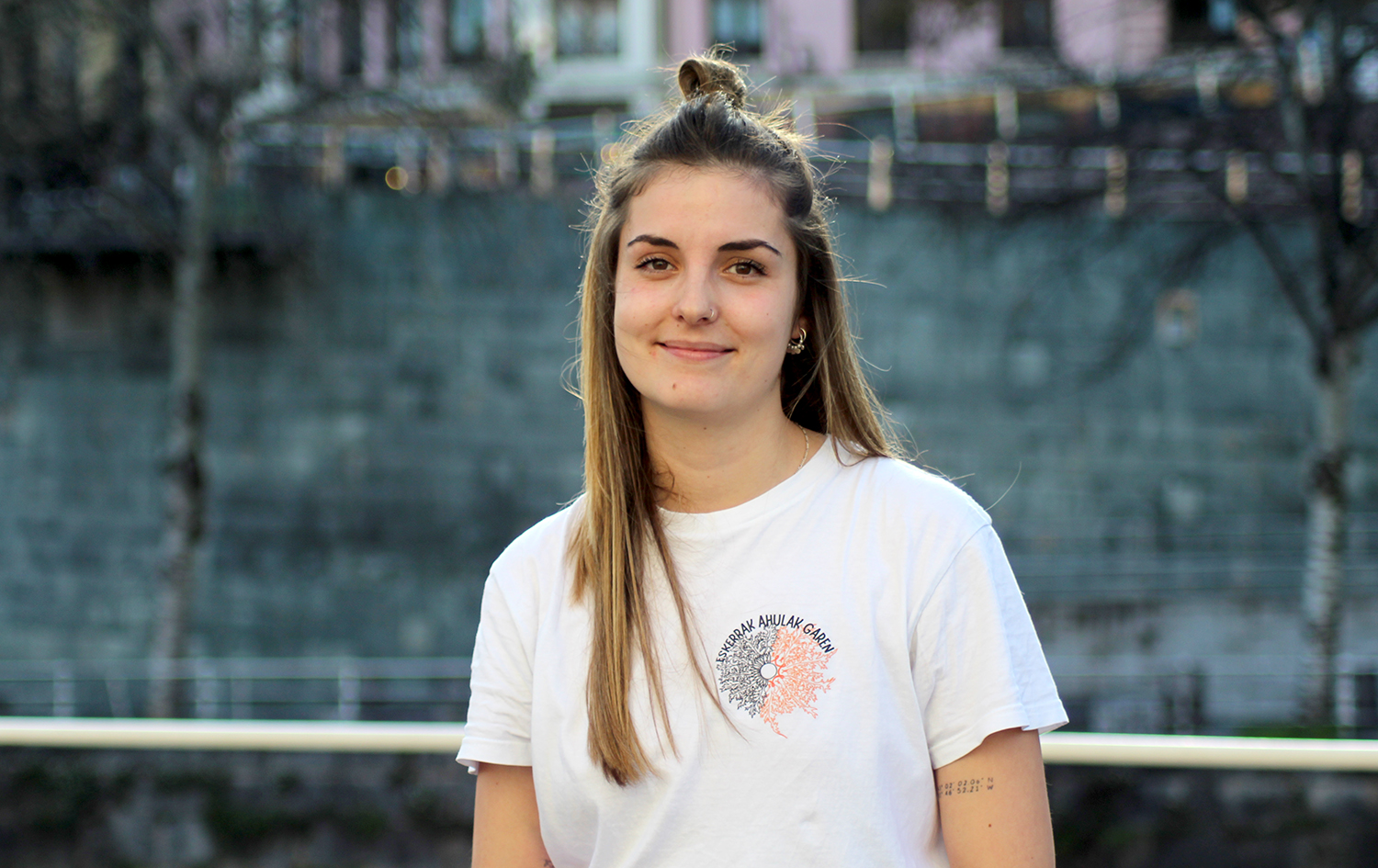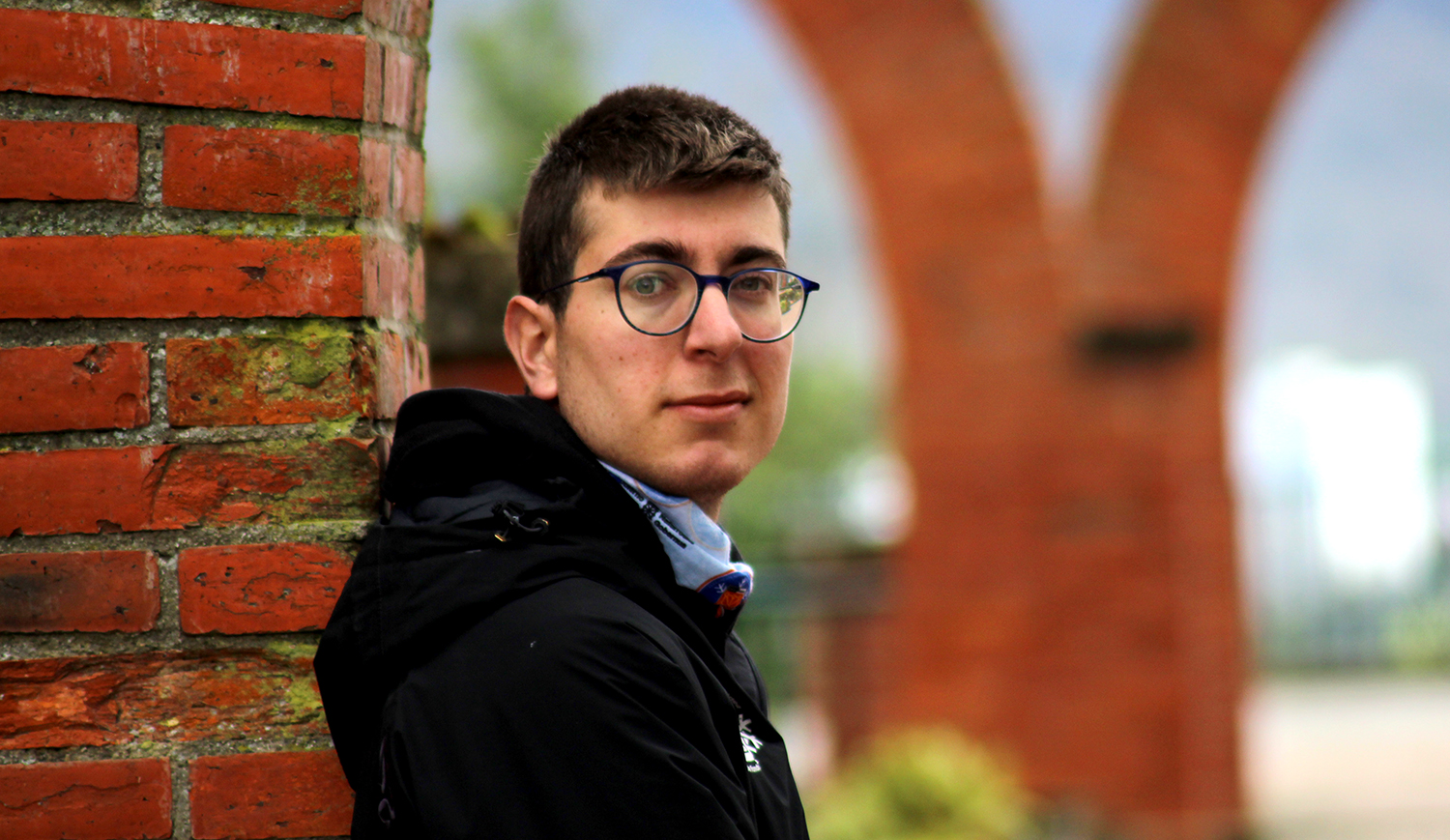"The Church has tightened power in education and the State has allowed it"
- The sociologist Marina Subirats (1943, Barcelona) has published more than a dozen books on gender equality, education and class society. Last year he won the ASPÀSIA Prize for Equality in recognition of the work of political institutions. She was director of the Spanish Women's Institute between 1993 and 1996 and an Education Advisor at the Barcelona City Council between 1999 and 2006. After his visit to Paris in May 1968, he made a fruitful journey around his commitment.

After studying philosophy and letters, you went to Paris to specialize in sociology. He lived on May of 68. Has it influenced your trajectory?
Of course. In Spain, we suffered the hardships of Franco at that time. Everything was forbidden and everything was evil. There was no freedom of opinion or policy. Therefore, leaving this context and living in Paris was a great finding. It was the outbreak of freedom and audacity, and compared to what Spain was, everything was there possible. Certainly, my trajectory, which I would later do as a sociologist, was linked to the Paris commitments.
Is there any similarity between May 68 and M15?
The contexts are similar: in search of freedom, the challenge of both movements was to eliminate systems that did not work and were out of date. They shared the soul itself. The biggest difference is that today's young people also have to fight corruption, and at that time it wasn't, or at least it wasn't, explained.
You returned from Paris in 1970. Feminism was beginning to get stronger then.
Yes, and I participated actively in Catalonia. But we realized that we knew nothing about women and that we needed to work seriously to fight for our rights. By then I was already immersed in the sociology of education and saw that it could be an interesting resource to analyze the situation of women.
That experience led you to be the director of the Women's Institute.
The institution was created in 1983 and at that time there were not too many people working in this field. The Instituto de Ciencias de la Educación de la Complutense de Madrid invited me to participate in a conference and, in this sense, the first director of the Instituto de las Mujeres de Madrid proposed to be part of the recently created advisory group. There were all the directors of each ministry, together with several experts, although we had little ears… Well, the goal was to discuss the policies that were to be implemented. I participated for four or five years and in 1993 I was given the leadership of the Institute on the basis of my experience.
More than two decades have passed, but much work remains to be done in the fight for equality. To what extent has the situation changed?
The institutions have gone backwards. When I left office in 1996, the Women’s Institute of Madrid was strong. We got a lot of things, among other things, we were European Union spokesmen at the United Nations Conference in Beijing. The rest of the countries were surprised by the turn made by Spain after the Franco regime. But then the PP came to power and the Women's Institute went down. It is no wonder that the comment made this week by the director of this institution is being heard. They are shameful and have called for their resignation.
You have worked within the organisations. Are they essential?
Things can be achieved from anywhere you fight, but for countries to move forward it is imperative that people and institutions go together. The thrust is provoked by the population and backed by institutions. If either of these two agents fails, there's nothing to do.
Let's talk about education. What do you think of LOMCE?
The 1970s education is more reactionary than the law. It brings us to Franco and it is totally discriminatory. Praise the best in a class and reject the least good. A child may not feel like learning at age 10, and may later be a good student when he or she turns 15 or 16. It is very reactionary and that is why all the political parties have called for it to be amended, except for the pp, not to respect the law.
This law allows schools receiving public money to decouple classrooms between boys and girls.
The Church has tightened power in education and the State has made it possible. I have worked for seven years at the State Education Council and I have seen that the Church is looking for the public school to be specialized between boys and girls. Fortunately, this is impossible. They have invented that separation is beneficial for child development and that they better work... but that cannot be scientifically proven.
Do you believe that education is experiencing the hardest moment of democracy?
No. Well, from a legal point of view, yes, but it is true that there has been a very interesting response from society. Especially in Catalonia, I have not noticed it so much outside here. I could not say that he has been in the Basque Country. Many schools have seen that they have to change the methodology and have ensured it. With a lot of trouble, because the law is like a corset, but when it's needed, they don't.
“60ko hamarkadan hasi nintzen unibertsitatean. Noski, testuingurua ez zen oraingoa. Gogoratzen dut zientziak maite nituela, baina garai hartan zaila zen emakume batentzat gizonezkoei aitortzen zitzaizkien ikasketetan murgiltzea. Gainera, familian ere lehenbiziko emakumea izan nintzen unibertsitatera joaten. Beraz hesi bikoitza nuen: klasearena eta generoarena. Jakin-min handiko emakumea izan naiz betidanik, eta denetarik probatu nahi izan dut. Baina ziur naiz zientzien bidetik jo izango banu orain damu izango nintzela”.
Errepikatu nirekin: Sara Millerey. Ez dezagun ahaztu bere izena. Transfeminizidioaren biktima da Millerey: gorrototzaile transmisogino batek torturatu zuen, besoak moztu zizkion eta bizirik bota zuen ibaiertz batera. Bi orduko agoniaren ondoren hil zen.
Errazagoa da J.K... [+]
Many Basque feminists have been disappointed to learn that writer Chimamanda Ngozi Adichie has externalized pregnancy, meaning that a surrogate has fertilized her baby for money.Adichie is the author of the essay We should all be feminists, among others. They have ignored the... [+]
Indartsua, irribarretsua eta oso langilea. Helburu pila bat ditu esku artean, eta ideia bat okurritzen zaionean buru-belarri aritzen da horretan. Horiek dira Ainhoa Jungitu (Urduña, Bizkaia, 1998) deskribatzen duten zenbait ezaugarri. 2023an esklerosi anizkoitza... [+]
Gozamen aparta bezain deskribatzeko zaila dakar, norbaiten hitzak irakurri edo entzun ostean, zera pentsatzeak: “Horixe zen neu aurreko hartan azaltzen saiatu nintzena!”. Idazlea eta itzultzailea da María Reimóndez, eta galegoz aritzen da, hizkuntza... [+]
Orain arte desgaituak ez diren pertsonekin lehiatu da Uharteko Ipar Eski Taldeko Eneko Leyun eskiatzailea (Iruñea, 1998). 2024-2025 denboraldian, lehenengo aldiz parte hartu du Adimen Urritasuna duten Pertsonentzako Iraupeneko Eskiko Espainiako Txapelketan. Urrezko... [+]
Joan den urte hondarrean atera da L'affaire Ange Soleil, le dépeceur d'Aubervilliers (Ange Soleil afera, Aubervilliers-ko puskatzailea) eleberria, Christelle Lozère-k idatzia. Lozère da artearen historiako irakasle bakarra Antilletako... [+]









